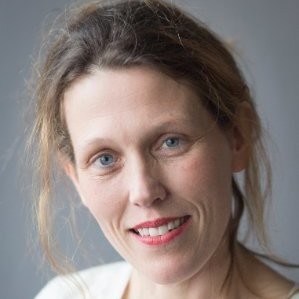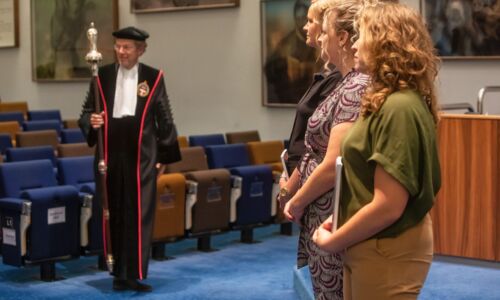National platform to improve visibility Spanish language
-
 Sagrada Família (via Pixabay)
Sagrada Família (via Pixabay)
As part of Nijmegen: Language Capital, professor of Spanish language and Culture Brigitte Adriaensen will be launching a national Platform Spanish together with several partners. Its intended goal is to promote the visibility of Spanish language and culture, as well as various Latin-American cultures, in the Netherlands. ‘It would be a shame if the Netherlands stopped providing good students in this field.’
It is quite difficult to find Dutch people that can speak Spanish very well. That is something that the research group of Spanish Language and Culture of Radboud University quite regularly hears from embassies to Spanish-speaking countries. This is not very strange: Spanish is lagging behind, when compared to the attention paid to French and German in the Dutch education system. A new Platform for Spanish, which will be launched in the Elinor Ostrom building tomorrow, is set to change that.
The platform consists of the website Platformspaans.nl, as well as an annual colloquium and a monthly newsletter, Brigitte Adriaensen explains on the phone. The website will collect all kinds of information on the Spanish-speaking world that is relevant to Dutch people, such as places to learn Spanish, or an overview of activities concerned with Spanish language and culture.
Depth
Adriaensen took the initiative for setting up the platform along with Pilar Tera. She is the director of the Instituto Cervantes, a non-profit that aims to improve the visibility of the Spanish-speaking world. The duo received support from embassies of a dozen Spanish-speaking countries, including Spain, Mexico, Argentina, Peru, and Cuba; they were also supported by a work group of teachers and assistant professors who built the website over the past year. The organisers want to connect everyone who is interested in Spanish, from teachers and students to interpreters and translators.
This is very necessary, but not because Spanish is unpopular. Quite the opposite, according to Adriaensen, especially at the University. ‘The issue is simply that students often opt for much broader programs, such as European Studies, Arts and Culture Studies and International Relations. Within those programs, Spanish is a popular elective, but that comes at the cost of depth. This in turn means that the language level of graduates is not as high as we would like it to be.
Adriaensen is concerned that not a lot of Dutch students choose to study Spanish Language and Culture. ‘It would be a shame if the Netherlands stopped providing good students in this field. That might sound a little dramatic, but there are fewer and fewer places to learn. Besides the broader program of Latin-American Studies at the University of Amsterdam, there are only three left: Utrecht, Amsterdam and Nijmegen. It is also possible to study Latin American Studies in Leiden. These programs are doing fine at the moment, but we do want them to continue to do so.’
Future
According to Adriaensen it is especially important in the Netherlands to emphasize the Spanish language. ‘The Netherlands has always put a strong emphasis on neighbouring languages’, she explains. ‘For example, it is not always easy to learn Spanish in secondary school. There are more and more schools where it is possible to learn, but the language is less prominent there than French and German, even though it is a global language. Additionally, there is a large Latin-American community in the Netherlands, especially in the Randstad.
Platforms for the French and German languages have been around for awhile already; the two languages are also both represented on the website Buurtaalonderwijs.nl. ‘We don’t want to take attention away from those languages, but we have noticed that Spanish teachers, students, interpreters and translators are not as united; we would like to change that.’
Adriaensen does recognise that, right now, the Spanish language has less of an impact on our economy than French or German. However, she wonders if that can be attributed to the strong trade ties to Germany and France. ‘You could turn that reasoning on its head. Perhaps it is because there are fewer students learning Spanish and gaining the opportunity to explore new possibilities.’ Above all else, Adriaensen prefers to look ahead. ‘You can choose to use the status quo as a point of reference, but you can also think proactively and look to the future. That is where Spanish could be very high on the list.’
Translated by Jasper Pesch.




